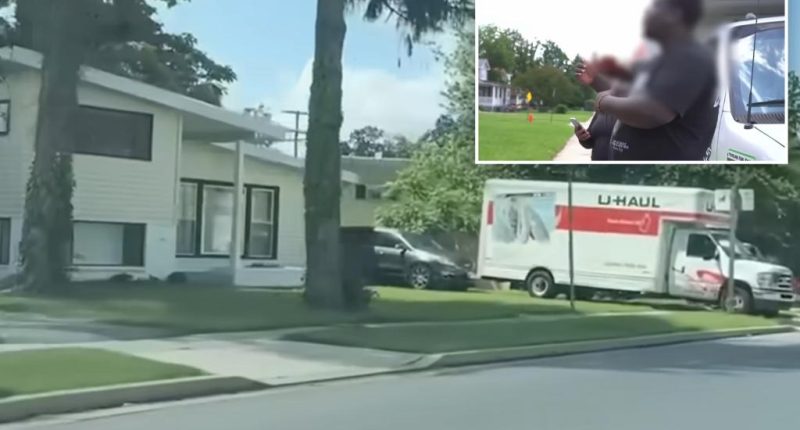Share this @internewscast.com

Dealing with squatters in rentals and vacant homes has become more of an issue than ever before.
Aggravating the situation are swindlers on social media who are reportedly preying on vulnerable individuals seeking housing by directing them towards homes that have been recently vacated, for a nominal charge, of course.
Case in point: A local news outlet out of Maryland shared the story of Mike Haskell, the owner of a house in Windsor Mill, MD.
Having invested tens of thousands in renovating the four-bedroom, two-bath property, Haskell was just a day away from closing a sale when he received an unwelcome phone call.
By the next morning, he’d learned that an unknown family of four had been living on the property for at least a week—without his permission.
“There should be nobody there”
In an interview with Spotlight on Maryland, Haskell shared that his potential buyer was the one who informed him about the squatters. They noticed a U-Haul truck stationed outside the house and decided to contact Haskell to inquire about the situation.
“They thought it was maybe being unstaged for advertising, and I said, ‘No, that was done way earlier. There should be nobody there,’” Haskell said.
Turns out, the situation had become quite serious. According to Haskell, he was forced to call the Baltimore County Police Department (BCPD) after he and his colleagues noticed that the locks on the property had been changed, and the sale sign had been removed from the front yard.
The police treated the initial call as a “civil matter,” according to documents obtained by Spotlight on Maryland. No official charges or arrests were made, and the squatters were not removed.
When the local outlet came to check in on the situation themselves with Haskell, they approached the family, who confessed to Spotlight that they were “unlawfully occupying Haskell’s property and recognized that their presence allegedly interfered with an active sale to prospective buyers.”
In speaking with the outlet, a man and a woman explained how they found the home through a social media advertisement offering a one-time fee of $7,500 to move into the Windsor Mill property.
They met the poster at Haskell’s home, handed over a cash payment, and signed a lease document before moving in, which they shared with the reporter. (The couple refused to share the original advertisement they allegedly saw online.)
In the end, Haskell was able to persuade the family, who had two young children, to leave the property and hand over the keys for $3,000.
(Realtor.com® reached out to Haskell for comment, but did not immediately receive a response.)
Removing squatters isn’t easy
What makes this story stand out is just how quickly squatters were able to occupy the space.
Because once a squatter has made their way into a home, it’s very difficult to have them removed.
Experts agree that the best way to ensure squatters can’t get access to your home is to make sure the property is monitored regularly, even when it’s not occupied.
“The key to protecting yourself from squatters is preventing them from entering in the first place,” real estate professional and attorney Bruce Ailion, of Re/Max Town & Country in Atlanta, tells Realtor.com.
In Haskell’s case, the family not only entered the home, but the locks were changed as well, giving them a level of access synonymous with ownership.
Ailion advises forgoing cheap locks and deadbolts, which he suggests can be opened “in about 10 seconds.” Instead, he recommends buying directly from a locksmith, who has “higher-grade locks that are hard to compromise.”
“As soon as you list a home for sale or lease, invest in cameras and security systems,” adds David Metzger, an attorney at Williams Teusink, a real estate firm in Atlanta.
Still, even with heightened security, squatter situations happen.
Just like this instance in Maryland, the best course of action if you find squatters on your property is to contact local law enforcement immediately. Note that police usually can’t remove squatters, but your local sheriff should be able to help you oust the intruders.
And if you’re faced with the worst-case scenario—the squatters refuse to leave—contact a qualified attorney specializing in property law to understand your rights and legal options for eviction proceedings.
Every state has different squatters rights contingencies, but no matter where you live, you should prepare yourself for a fight.
“It is currently more difficult to get squatters out than getting a delinquent tenant out,” adds Ailion.
















